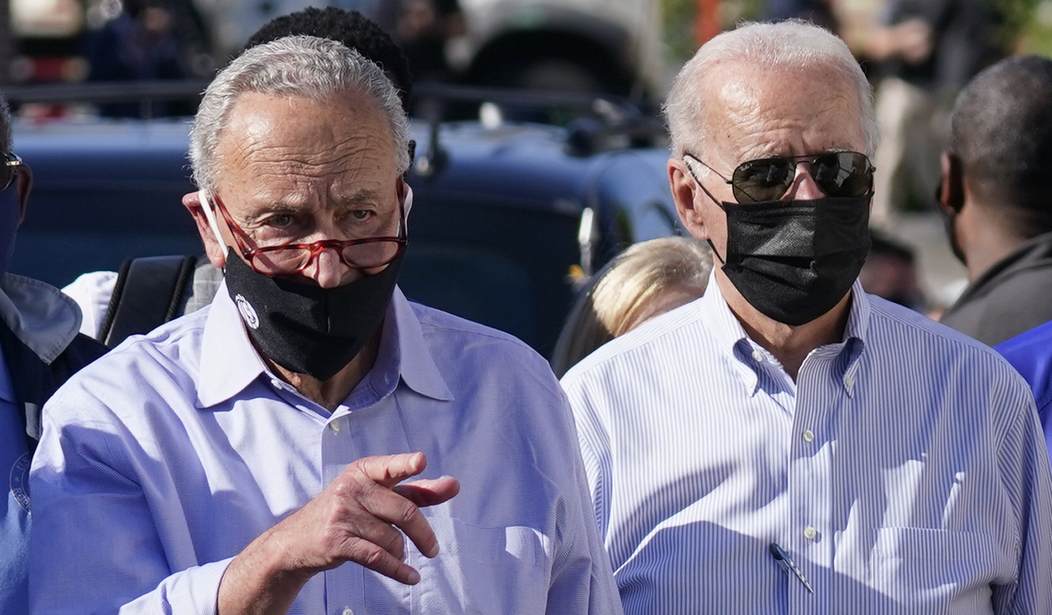While it’s still ridiculously early to be dancing on anyone’s political grave with more than a year to go before the midterm elections, there are already some early indicators that the Democrats are getting nervous. Visions of a grateful nation thanking them for massive tax hikes and new spending programs while being uplifted on the wings of Joe Biden as some sort of 21st-century FDR and LBJ rolled into one are fading quickly. They’re being replaced by justifiable fears that they vastly overpromised and underdelivered after the 2020 elections and Uncle Joe is now less of a soaring eagle and more of an albatross around their collective necks. Over at The Hill, a group of leading Democratic strategists was gathered to discuss the current mood and climate among party insiders. Nobody was willing to run up the white flag at this point, but several of them admitted (off the record) that there could be some dark times on the horizon. Anyone capable of reading the poll numbers coming from the usual sources seems to be thinking that standing too close to Joe Biden at this point might not end up being in their best political interests.
Democrats are grappling with the increasingly dire political reality facing them in next year’s midterm elections as warning signs pile up for the party ahead of 2022.
Once hopeful that they could defy the typical midterm shellacking dealt to the party in power, a series of foreboding developments has rocked that sense of optimism. President Biden’s approval ratings are in free fall, his key legislative priorities have stalled and, just this week, Rep. John Yarmuth (D-Ky.) announced that he would retire, making him the first senior House Democrat to bow out ahead of the midterms.
In conversations with The Hill in recent days, several Democratic strategists and operatives expressed a growing sense of pessimism about 2022. Each one said that the party’s recent decline is reversible. Still, most offered a sober assessment of Democrats’ position heading into the final stretch of 2021.
Before any Republicans or conservatives start popping champagne corks, I will remind you that we’re only looking at a snapshot of the political landscape nearly 13 months before the votes are counted next year. In politics, that’s an eternity, and a lot can happen over the winter. Also, we should keep in mind that the polls haven’t exactly been reliable over the past few cycles. (Just ask second-term President Hillary Clinton about that.)
But with all of that said, it would be hard to depict the current prospects for Democrats in 2022 as rosy. Currently, Joe Biden’s approval numbers are underwater on every significant issue except for handling the pandemic, where he’s barely above fifty. And even on that subject, I suspect most of the country realizes that any success we’ve seen in defeating the virus is almost entirely due to a set of vaccines that Biden had no hand in the development of (at “Warp Speed”) and almost nothing to do with the distribution of. (That has been handled almost exclusively at the state and municipal levels, as it should be.)
And as the President’s numbers go, so too do those of the members of his party in down-ballot races. But there are a couple of other factors that should dampen GOP hopes as well. The usual beating that the party in power takes during a president’s first midterm is often driven by the loss of a number of marginal seats that they picked up from a winning president’s coattails. We really didn’t see all that much of that happening in 2020. In fact, the GOP wound up taking some seats back that they lost in 2018. This isn’t to say that there won’t be some neck-and-neck fights ahead, particularly in the Senate. Both of the seats the Democrats now hold in Georgia were taken by a hair’s breadth. If the mood in the Peach State is souring, Raphael Warnock could find himself out the door as quickly as he arrived. But the GOP is defending more territory than the Democrats this time around, so there could potentially be some measurable shuffling on both sides.
Another issue that’s probably making some Democratic strategists gloomy is the prospect of more retirements in seats they weren’t expecting to have to defend all that vigorously. There’s already been one such announcement and more are not out of the question.
House Budget Committee chairman John Yarmuth’s (D-Ky.) announcement this week that he will not seek another term presaged a critical period in the run-up to next year’s midterm elections as members of Congress contemplate whether to run for re-election in a difficult political environment or to call it quits and move to a new phase in life.
Just how many members opt to call it quits in the looming retirement season — the period stretching after Labor Day and before Martin Luther King Jr. Day when members spend weeks at home with family and friends — will have a substantial impact on next year’s elections, and on the remainder of President Biden’s first-term agenda, especially for Democrats who hold the narrowest of majorities in the House of Representatives.
Yarmuth was the 20th House member to announce his retirement this year. He was the 11th Democrat to do so. At least five other Democrats heading for the door are from competitive seats that could easily flip if their party sees a meaningful downturn next November. But the elephant in the room is the decennial redistricting process that’s still playing out in many places. Until we know the layout of the new districts, we won’t have much of an idea where major shifts will take place.







Join the conversation as a VIP Member